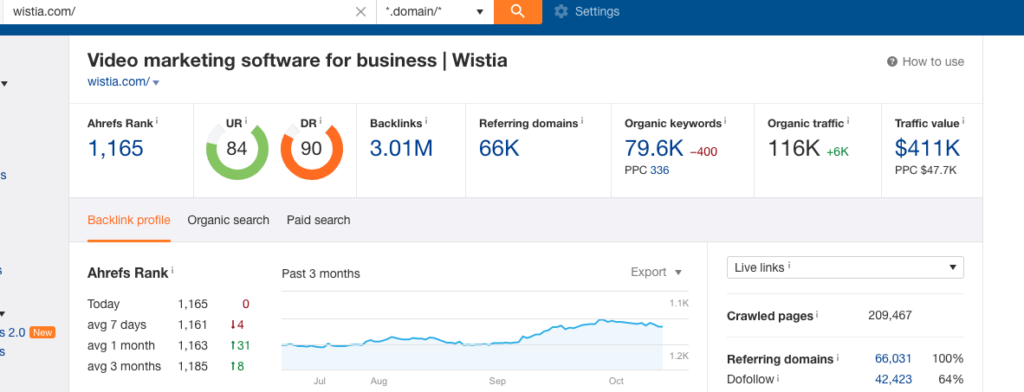For better or worse, I’m a numbers person. I regularly think about new decisions in terms of ROI – how much will I put in, and what will I get out of it.
For example, I want to start a new business where I’ll buy employee shares in fast growing companies. One of the first things I did was open excel to figure out a conservative and upside scenario for how much I’d spend on costs buying/selling, and potential returns given my strategy.
I’ve done this with newsletter subscribers, content strategies, sales lists, etc. It all comes down to numbers, right?
No, it’s not all about numbers!
A few years ago I had the pleasure of getting to know Chris Savage at Wistia. He’s a smart guy who’s built a pretty impressive business. And, I think he lives in spreadsheets a lot less than me.
I was in the early days of starting a business then, and was investing my time into blogging, while seeing very little results. No traffic spikes, no leads, no ROI.
Chris told me that when they first started blogging at Wistia, they experienced something similar. But, he knew things were working when he went to conferences because (smart/important/industry leading) people would recognize him and say “hey – I read your blog, it’s really good.”
The data didn’t say his blogging strategy was worth it yet. However, he had conviction because of the positive feedback he was getting from the right people. It would just take time to show up in the numbers.
He was right! Wistia has over 500,000 customers, and very enviable domain stats for the SEO nerds out there:

This reminds me a lot of a podcast I’d listened to a while back with Jason Fried of Basecamp who is also famous for building a large, profitable, bootstrapped SaaS business over the course of >10 years.
He said that he doesn’t look at the numbers for his business often. They use data all the time, but they are not obsessed with today’s revenues, or last week’s signups. Focusing on the metrics a PE/VC board member may have as top of mind can drive you a bit nuts.
Instead, his philosophy is that doing good work over a long period of time and looking for signals of success, even if it’s not hard numbers, to corroborate your focus leads to achieving whatever numbers based goal you may have perseverated over.
Seeing something similar
I’m glad I’ve listened to people like this. As I said, I’m a numbers guy, and I want to also be a disciplined person who kills what isn’t working quickly. Like any strength, it’s also a weakness.
The point here is that figuring out “what’s working” is an art in the early days of a venture. It’s part numbers, and part really smart people actually caring about what you’re doing as evidenced by remembering a blog and recognizing you at a conference. Or, other non-data based signals.
I’ve seen experienced something similar, although at a much smaller scale, with my Whiteboard Wednesday videos, and have also started to see similar signs as a double down on the SSR newsletter.
I hope this is useful advice for all the numbers people out there: look for signals outside of your spreadsheet, especially when in the early days of a venture doing things that don’t scale.

galaxy a32 5g
wsappx
スノーフレーク 株価
capitulo 5 temporada 8 game of thrones
swot analyse skabelon
pokemon mond starter
http error 504
melissa mccarthy peliculas
co to shadowban
chrome キーボードショートカット
transformers 7
tutorialspoint laravel
can dogs eat kiwi fruit
motelio
gwyneth paltrow filmler ve tv şovları
rebel wilson peliculas
black widow schauspielerin
how to pin a tweet
como hacer un histograma en excel
ps4 ユーザー 削除
gamestop crema
the favourite ending
background position css
wix iniciar sesion
entrenando a mi dragon
daniel kaluuya film dan acara tv
orra brann
pịkachu
url blacklist とは
amazon prime subtitles
amanda oneill
infinity stones
emma stone películas y programas de televisión
truyện les 18 hay
como jugar roblox
kostym hm
cross play
wakanim
discord go live
plex subtitle
changer mot de passe gmail
ลูกศรสีดำ
tayo vector
foto gmail
mr beast là ai
fapanie
film doctor strange
how to pin a tweet
смотреть теннис
bipolar symptomer